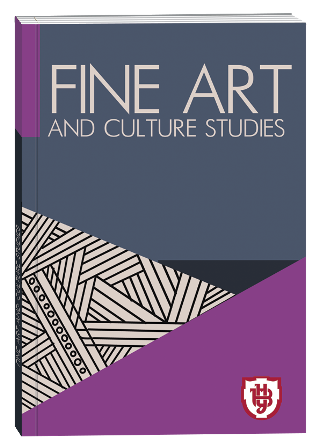MODERN METHODS OF VOICE TRAINING IN THE CONTEXT OF MUSIC-PEDAGOGICAL EDUCATION
DOI:
https://doi.org/10.32782/facs-2025-1-7Keywords:
voice training, music-pedagogical education, modern methods, innovations, traditions, vocal skills.Abstract
The article aims to conduct a comprehensive analysis and systematization of modern voice training methods within the context of music-pedagogical education. The research focuses on identifying the most effective methods that contribute to the development of students’ vocal mastery, taking into account contemporary requirements for vocal performance and pedagogy. Methodology. The study employed a combination of scientific methods, including an analysis of scholarly literature on vocal pedagogy, phonopedics, and the psychophysiology of voice. Methods of systematization and generalization were applied to classify modern voice training techniques. Empirical approaches included observing the educational process, analyzing the practical experience of vocal instructors, and studying and adapting international methodologies, such as Estill Voice Training, Seth Riggs’ method, and Brett Manning’s method. The synthesis of the collected data enabled the formulation of a comprehensive approach to selecting and implementing voice training methods. Scientific Novelty. A systematic analysis of modern voice training methods was conducted, assessing their effectiveness and applicability within the framework of music-pedagogical education. Nine key methods were identified and substantiated, including the method of integrated intonation, the method of controlled breathing, the method of resonance balance, the method of articulatory precision, the method of cantilena singing, the method of vocal mobility, the method of vocal-theoretical analysis, the creative-interpretative method, and the method of stage expressiveness. Practical recommendations were developed for each method, enhancing their implementation in the educational process by making it more effective and purposeful. Conclusions. The research findings confirm that modern vocal training should be grounded in scientifically validated methods, take into account the individual characteristics of each student’s voice, and integrate both technical and artistic development. The proposed voice training methods foster the development of a comprehensive set of vocal-technical skills in students, enhance their creative initiative, and cultivate their capacity for self-improvement. It was determined that the systematic application of these methods in the educational process elevates the level of professional training of future musician-educators and facilitates their successful adaptation to contemporary vocal performance standards. Future research prospects lie in designing integrated vocal training programs that combine various methods and address the individual needs of each student.
References
Зотова В. Інтерактивний аспект сучасної вокальної освіти вчителів на прикладі методу EVT. Професіоналізм педагога: теоретичні й методичні аспекти. 2019. № 11. С. 214–224. DOI: https://doi.org/10.31865/2414-9292.11.2019.197234
Ільченко О. О., Сверлюк Я. В. Методологічні проблеми професійної музичної освіти: монографія. Рівне: Перспектива. 2004. 200 с.
Кишакевич С. В. Деякі аспекти навчання естрадного співу за методиками зарубіжних вокальних педагогів. Науковий часопис НПУ імені М. П. Драгоманова. Серія 5. Педагогічні науки: реалії та перспективи. Випуск 80. Том 1. 2021. С. 124–128.
Кулікова, К. С. Сет Ріггс як творець вокальної техніки «Speechlevelsinging». Магістерські студії. Альманах / ред. кол. : Д. С. Мальчикова, Т. С. Корнішева. Херсон; Івано-Франківськ : ХДУ, 2023. Вип. 23. С. 351–354.
Кушка Я.С. Методика навчання співу: посібник з основ вокальної майстерності. Тернопіль: Навчальна книга – Богдан, 2010. 288 с.
Олексюк О. М. Музична педагогіка: навч. посібник. Київ : КНУКІМ, 2006. 188 с.
Самая Т. Вокальне мистецтво естради як чинник культурного життя України другої половини ХХ – початку ХХІ століття: дис. канд. мистецтвозн. Київ, 2017. 199 с.
Стахевич О. Г. Основи вокальної педагогіки. Ч. 1: Природно-наукові теорії сольного співу. Курс лекцій. Суми: СумДПУ ім. А. С. Макаренка, 2002. 92 с.
Ушакова О. А. Інтерактивні методичні підходи вокальної підготовки до практики навчання естрадному співу. Академічні Візії, 2022. Вип. 8–9, С. 3–17. DOI: https://doi.org/10.5281/zenodo.6683702
Фоломєєва Н.А. Опанування вокально-виконавських прийомів у класі естрадного співу: методичні рекомендації для здобувачів вищої освіти спеціальностей 014 Середня освіта (Музичне мистецтво) та 025 Музичне мистецтво. Суми: ФОП Цьома С.П., 2021. 60 с.
Salsbury K. Estill voice training: the key to holistic voice and speech training for the actor: Unpublished master’s thesis. Virginia Commonwealth University, Richmond, Virginia, 2014. 66 pр.







